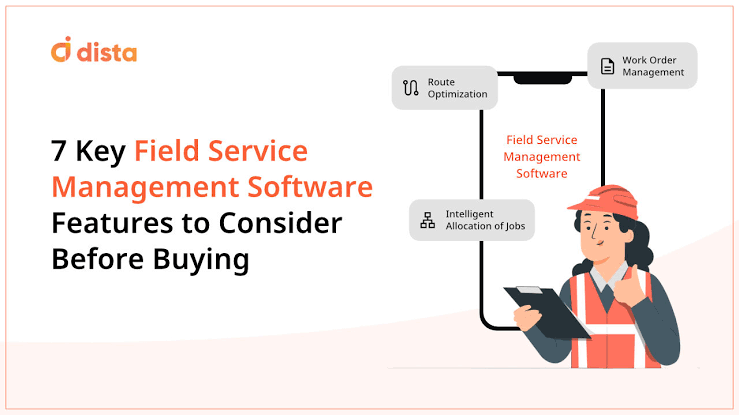Top 5 Shopware Development Tools to Boost Your Productivity

Strong 8k brings an ultra-HD IPTV experience to your living room and your pocket.
The world of e-commerce is rapidly expanding, with businesses striving to stay ahead of the competition through enhanced digital storefronts and seamless customer experiences. Among the top-performing eCommerce platforms, Shopware stands out for its flexibility, scalability, and user-friendliness. According to recent market data, Shopware experienced a 30% year-over-year growth in usage across Europe and is gaining significant traction in global markets. To fully leverage the capabilities of this powerful platform, developers need to integrate top-notch tools that not only streamline workflows but also maximize productivity. This blog highlights the top 5 Shopware development tools that every developer or agency offering Shopware Development Services should consider in 2025.
1. Shopware Administration Interface – Efficient Management for Developers
The Shopware Administration Interface is an essential part of the development process, designed to simplify store management. With its modern, Vue.js-based architecture, it offers a dynamic and user-friendly backend. Developers can easily configure modules, manage plugins, and monitor system status without digging into code.
This tool increases efficiency by offering a visual UI that mirrors the complexity of the backend in a comprehensible way. It’s perfect for teams providing Shopware Development Services, allowing non-technical users to also interact with the platform meaningfully.
Here are five essential features of the Shopware Administration Interface:
- Visual Backend Interface: A sleek and intuitive layout built with Vue.js lets users manage everything visually—from product entries to configurations—without writing a single line of code.
- Plugin Management Made Easy: Quickly search, install, configure, and update plugins directly from the admin panel. It ensures rapid customization without disrupting ongoing operations.
- Custom Module Integration: Developers can create, upload, and manage custom modules that align with client-specific functionality requirements using the integrated module manager.
- Real-Time Notifications: Receive automatic alerts for order placements, stock levels, and system updates, helping you react faster to store events and reduce downtime.
- User Role Management: Set role-based access for different users, improving data security and workflow segmentation within the store environment.
2. Shopware CLI Tools – Automate Daily Tasks
The Command Line Interface (CLI) tools provided by Shopware are indispensable for boosting productivity. Developers can automate repetitive tasks such as cache clearing, database migrations, and plugin installations. These CLI commands help reduce manual errors and improve the speed of development cycles.
With Shopware CLI, developers can build and deploy changes efficiently, saving time, especially during sprints. For any company offering Shopware Development Services, this tool helps maintain high performance and faster go-to-market timelines.
Here are five essential features of Shopware Developer Tools that boost customization:
- Code Generator CLI Tools: Command-line utilities help you scaffold new plugins, themes, and services instantly. This reduces manual coding time and ensures consistency across your custom Shopware solutions, especially useful in larger development teams.
- Symfony Debugging Support: Deep integration with Symfony provides access to powerful debugging features. Developers can trace errors, manage logs, and view request-response cycles to maintain cleaner code and eliminate bugs faster.
- Vue.js Dev Extension: Shopware’s admin interface uses Vue.js, and the Vue Devtools browser extension allows developers to inspect component trees, data, and state, making UI debugging more manageable and accurate.
- Error and Log Viewer: View real-time error logs and system events directly in the developer console. This immediate feedback loop improves issue detection, especially during development and testing.
- Custom Cache Management: Easily clear or manage specific cache segments like templates or plugins. This helps ensure that updates reflect properly during development and reduces frontend glitches.
3. Docker – Simplify Environment Setup
Docker has become a gold standard for containerized development, and its benefits extend beautifully to Shopware development. By using Docker, developers can replicate the entire Shopware environment across teams, ensuring consistency regardless of the operating system.
Docker makes onboarding new developers easier and minimizes system-specific errors. As Shopware becomes more API-driven and microservice-oriented, Docker serves as a robust solution to maintain stable, reproducible development environments.
Below are five major benefits of using Shopware Plugin Manager:
- Easy Plugin Installation: Install plugins directly from the Shopware Store or upload custom ZIP packages. The interface guides you through each step, simplifying the entire setup process—even for non-technical users managing a live store.
- Version Compatibility Check: Each plugin is verified for compatibility with your Shopware version. This automatic check prevents bugs and ensures that new features integrate smoothly without disrupting existing store functions.
- Plugin Activation/Deactivation: Enable or disable plugins with one click. This helps developers test changes quickly and rollback features if needed, all without affecting the store's performance or data integrity.
- Update Management: Receive notifications for plugin updates and apply them directly through the admin panel. This ensures your store remains secure and runs on the latest features and improvements.
- Custom Plugin Upload: Developers can upload and manage in-house plugins for unique store requirements. This enables businesses to deliver highly tailored experiences without relying solely on third-party tools.
4. Shopware Devtools – Supercharge Your Workflow
Shopware Devtools is a browser extension specifically created to streamline the Shopware backend experience. It helps developers debug API calls, monitor network activity, and analyze storefront rendering processes more efficiently.
This extension is especially helpful in customizing themes, troubleshooting plugins, and inspecting components. Teams that offer Shopware Development Services rely heavily on such tools to deliver faster fixes and more accurate customizations.
Here are five productivity-boosting features of Shopware Storefront Tools:
- Responsive Design Templates: Pre-designed templates adjust seamlessly across mobile, tablet, and desktop screens. This ensures every customer has a smooth, engaging experience no matter what device they use to shop.
- Drag-and-Drop CMS Editor: Create and manage content visually using the Shopping Experiences builder. Arrange banners, product listings, and CTA blocks without any coding knowledge, making customization simple.
- Dynamic Content Blocks: Add or rearrange content blocks that update automatically based on stock levels, product popularity, or marketing goals. These blocks offer flexibility and boost engagement without extra development work.
- SEO-Friendly Codebase: Clean code, structured data, and meta tag customization options ensure your storefront performs well on search engines while maintaining fast load times.
- Real-Time Theme Preview: Make visual changes to your theme and preview them instantly before publishing. This feature allows for safe experimentation without affecting the live store.
5. Xdebug – Advanced PHP Debugging
Debugging is a crucial part of any development cycle, and Xdebug provides a powerful debugging experience for PHP, the core language behind Shopware. It enables breakpoints, stack tracing, and real-time variable inspection, which are crucial for diagnosing errors.
Xdebug integrates smoothly with popular IDEs like PHPStorm and Visual Studio Code. Its ability to analyze bottlenecks and optimize execution paths makes it an invaluable tool for enhancing Shopware project performance.
Let’s explore five key benefits of Shopware API Tools:
- Robust REST API Access: Developers can manage product catalogs, customer data, and orders using RESTful endpoints. This simplifies third-party app integrations, making Shopware highly extensible and easier to maintain.
- GraphQL Support: GraphQL APIs allow developers to fetch only the data they need, reducing bandwidth usage. This leads to faster page load times, especially in mobile applications and custom frontends.
- Secure Token Authentication: APIs use OAuth2-based security protocols, ensuring only authorized users or systems access sensitive data. This is crucial for protecting customer and transactional information.
- Real-Time Data Sync: Connect your Shopware store to CRMs, inventory systems, or shipping software. Real-time syncing ensures that product availability, pricing, and order statuses are always accurate.
- Custom API Endpoints: Developers can create and register custom endpoints tailored to specific store functions. This adds flexibility for complex integrations without affecting existing Shopware operations.
Final Thoughts
Shopware continues to evolve as a go-to eCommerce solution for modern businesses, and developers need to stay equipped with tools that maximize efficiency and maintain quality. The ten tools discussed in this article are not just recommendations—they are must-haves for any serious development team or agency. If you're looking to scale your Shopware projects or need custom development support, partnering with a professional Shopware Development Services provider can help you unlock the platform’s full potential. The right team will already be using these tools and best practices, ensuring your eCommerce vision is realized efficiently and successfully.
Note: IndiBlogHub features both user-submitted and editorial content. We do not verify third-party contributions. Read our Disclaimer and Privacy Policyfor details.







